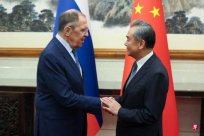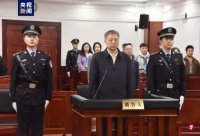(Shanghai / Hong Kong Reuters) British media reported that Chinese civil servants and employees of state -owned enterprises are facing more stringent private travel restrictions, and their overseas contact is also more stringent censorship.
Reuters on Tuesday (October 17) quoted 10 current and former civil servants and state -owned enterprise employees that related restrictions expanded since 2021, including prohibiting overseas travel, tightening travel frequency, overseas staying time, tedious time for staying overseas, cumbersomeThe approval process, as well as confidential training before leaving.They said that these measures have nothing to do with the epidemic of crown disease.
Two bank staff revealed that the lower -level employees of the Beijing and Shanghai Branch of China Construction Bank can only travel abroad once a year due to personal reasons, and can only stay for up to 12 days.
A teacher in Zhejiang and a person who learned about the new regulations of Shanghai's district this year also said that some public school teachers travel abroad for new restrictions.
It is reported that for a long time, the restrictions on personal travel abroad have always been applicable to senior government officials and national administrative staff who have the right to contact confidential information.
Reuters found that in the past two years, eight government agencies, including the National Pension Fund, issued eight public statements, indicating that they are strengthening the regulations of employees' personal travel abroad, but there is no detailed explanation of changes.
Reuters also quoted documents and related sources that the Chinese central and local governments are checking the relationship between civil servants and state -owned enterprise employees and their families.
Two experts told Reuters that this reflects the attention of Chinese leaders in the case of tension with Western relations.In recent months, China has encouraged citizens to participate in anti -spy activities and introduce the definition of new legal expansion of espionage.
Neil Thomas, a Chinese political researcher in the Institute of Policy of the Asian Association, said: "Beijing's threat to spy activities for Western countries is increasingly paranoia and preventing government employees from going abroad. It may be a way to reduce foreign forces to engage in spy activities."
Thomas also said that travel restrictions will particularly affect the interaction between China and the world."The fewer Chinese officials go abroad, the less policies can be learned from a good policy that foreign governments are implementing. In this way, the less they are not familiar with foreign society, and the less they understand the true views of the world for China."



